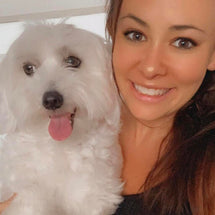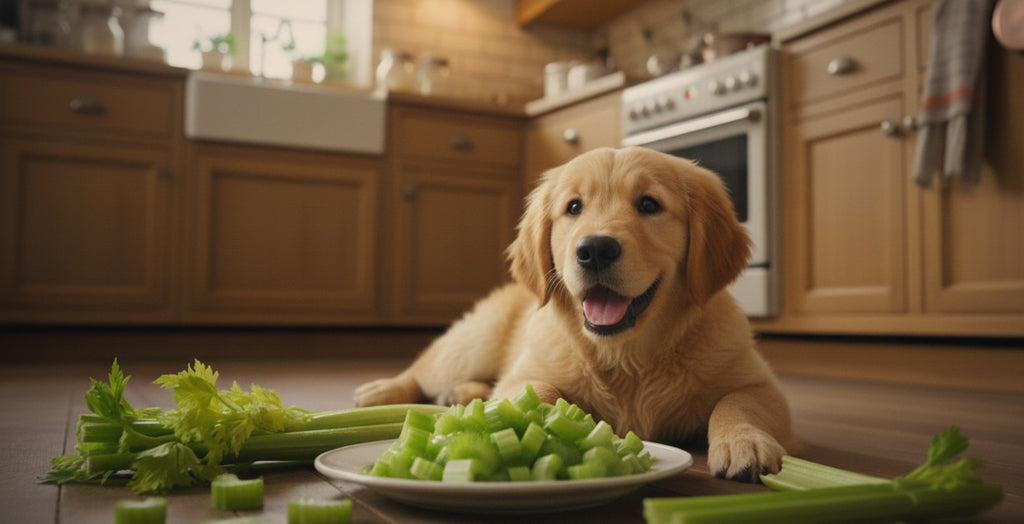How to Find a Reputable and Ethical Dog Breeder

Ah, puppy season, when the world seems just a little bit brighter, and the promise of tiny paws scampering through your home becomes impossible to resist! While it’s exciting to welcome a new four-legged family member, it’s so important to be responsible about where your pup comes from. Finding a reputable and ethical dog breeder can make all the difference in your puppy’s health and happiness (and your peace of mind).
So, before you get swept up in puppy cuddles and wet-nose kisses, let’s dive into what you need to look for when finding a responsible breeder.
Spoiler alert: it’s more than just cute puppies and pretty websites!

Start with Research (Before the Puppy Fever Kicks In!)
You wouldn’t buy a new car without doing some research, and the same goes for finding your new furry family member! Not all breeders are created equal, and the more you know, the better decisions you can make.
-
What breed suits your lifestyle? Whether you’re looking for an energetic exercise buddy like a Border Collie or a cuddly couch potato like a Greyhound, make sure you understand the breed’s needs and traits.
- Know the breed’s common health issues: Certain breeds are prone to specific health conditions. Knowing this beforehand can help you ask the right questions about health checks later on.

What Makes a Breeder Ethical and Reputable?
Here’s the deal: a good breeder is someone who genuinely cares about the well-being of their dogs, not just making a quick buck. But how do you tell the difference? Here are the signs you’ve found someone reputable:
1. Health Testing is Non-Negotiable
An ethical breeder prioritizes the health of their dogs and breeds responsibly to avoid passing on genetic issues. They’ll conduct health screenings for hereditary conditions (like hip dysplasia in Labradors or heart disease in Cavalier King Charles Spaniels).
-
Ask for proof of health clearances: If a breeder says their puppies are healthy, great! But also ask for documentation from a vet or health organization.
2. They Want You to Meet the Parents
One of the best ways to know what your puppy might be like when they grow up is to meet the puppy’s parents. A responsible breeder will be happy for you to meet mum and dad, or at least one parent.
-
Look at the parents' temperament: Calm, friendly parents often produce calm, friendly pups! Meeting the parents also gives you an idea of the size, appearance, and behaviour your puppy may inherit.
3. They’ll Ask You Questions
If the breeder is asking about your lifestyle, your experience with dogs, and how you plan to care for the puppy, that’s a great sign. Reputable breeders want to ensure their pups go to good homes, not just anyone with cash in hand.
-
Red Flag: If a breeder doesn’t ask questions or seems eager to sell without checking if you’re a good fit, it’s time to move on.
4. Puppies are Raised in a Loving Environment
Ethical breeders treat their puppies like family. That means the pups should be raised in a clean, happy home environment, with plenty of socialization and care. Avoid breeders where puppies are kept in cramped spaces or isolated from human contact—that’s a red flag for puppy mills.
-
Look for socialization: Puppies should be exposed to different sights, sounds, and people from an early age. This helps them grow into well-adjusted adults.
5. They Provide Ongoing Support
A reputable breeder won’t just hand over your puppy and disappear—they’ll provide you with ongoing support as your pup grows. Whether it’s advice on feeding, training, or healthcare, they’re invested in the puppy’s life after they leave the nest.

Finding a Breeder
Finding a reputable breeder is essential for ensuring the health and wellbeing of your new puppy.
- RightPaw is a fantastic platform designed to connect prospective puppy buyers with reputable breeders across Australia. RightPaw makes it easy to find breeders who meet high standards of care and ethics. All breeders listed are vetted and must meet certain requirements, such as health testing, breeding ethics, and offering ongoing support to puppy buyers.
-
Dogs Australia (Formerly ANKC) Reputable breeders should be registered with Dogs Australia (previously ANKC) or one of its state branches, such as Dogs NSW or Dogs Victoria. These breeders follow strict breeding standards, health protocols, and ethical practices, ensuring the well-being of their dogs.
-
Master Dog Breeders and Associates (MDBA) MDBA is another reputable association that ensures breeders adhere to ethical standards and prioritizes the health and well-being of the dogs. Breeders registered with MDBA undergo stringent guidelines, including health testing, proper puppy socialization, and care standards.
Red Flags to Watch Out For
Finding a responsible breeder can feel like searching for treasure—but it’s worth it! Here are some warning signs that a breeder may not be reputable:
-
No Health Testing or Vet Records: If a breeder can’t provide health clearances or proof of vaccinations, walk away. Ethical breeders prioritize the health of their pups.
-
Too Many Litters at Once: Good breeders usually only have one or two litters at a time, so they can give each puppy the attention and care they need. If a breeder has multiple litters available, it could be a sign they’re more focused on quantity than quality.
-
Puppies Are Always Available: If a breeder has puppies available all year round, it might indicate they’re more of a puppy mill than a responsible breeder. Reputable breeders usually have waitlists and planned litters based on health and demand.
-
Lack of Transparency: If you can’t visit the breeder’s facility or they’re reluctant to answer your questions, that’s a big red flag.
-
Shop Fronts: Some breeders may present a "shop front" where they bring dogs to meet potential buyers. This can be a concern if it's not their actual breeding environment. A shop front makes it hard for you to see the true living conditions of the dogs or how they are raised. Ethical breeders will want you to visit their home or kennel, where you can see the puppies interact with their mother and other dogs. Avoid breeders who hesitate to show you where the dogs live full-time.
-
Low-Quality Food: An ethical breeder should be committed to the health and wellbeing of their dogs, which includes feeding them a high-quality dog food diet. If the breeder is feeding the dogs cheap, low-quality food or if they can’t recommend a reputable, high-quality product, this could be a red flag. A good breeder will also provide detailed information about the puppies’ diet and suggest options to continue keeping them healthy. Poor nutrition can be an indicator that the breeder is cutting corners.
-
Too Many Breeds: Breeding multiple different breeds or having too many litters at the same time can indicate a puppy mill-like operation. Ethical breeders tend to focus on one or two breeds and have a clear purpose for their breeding program. Watch out for breeders who appear to be churning out puppies from several different breeds without any focus on health or quality.

Questions to Ask Your Breeder
When you find a breeder who ticks all the right boxes, it’s time to ask some questions. Don’t be shy, remember, this is a long-term commitment!
- How long have you been breeding?
- What health testing do you do for your dogs?
- Can I meet the puppy’s parents?
- What socialization do the puppies receive?
- Will I receive a health guarantee?
- What’s your policy if I can no longer care for the puppy?
- What do you feed them and why?
An ethical breeder will be happy to answer these questions and provide any documentation you need. They want the best for their puppies and will respect that you do too.

Adoption is Always an Option!
Not set on a specific breed or ready to give a puppy in need a forever home? Adoption is a fantastic option! Shelters and rescues are often full of pups, and adopting a dog can be an incredibly rewarding experience.
-
Breed-specific rescues: If you’re set on a certain breed but still want to adopt, look for breed-specific rescues. They can match you with a dog that fits your family and lifestyle.
-
Health Considerations: Many rescue dogs have had a health check and vaccinations before adoption, so you’ll know their health status upfront.
Want to learn more? Check out our comprehensive blog post, "Adopting a Dog: Shelter vs. Breeder".

Featured Breeder: Oaklands Oodles

At Oaklands Oodles, the dedication to breeding healthy, well-adjusted puppies goes beyond just pairing two dogs. Under the expert guidance of Bianca, a qualified veterinary nurse, Oaklands Oodles follows rigorous procedures to ensure that their puppies are not only adorable but also genetically sound and ready for loving homes. They conduct extensive DNA testing, hip and elbow scoring, and temperament assessments to ensure that both the parents and puppies are in top health. Their commitment to health testing and responsible breeding practices sets them apart from many breeders.
In addition to their focus on health, Oaklands Oodles also prioritizes the right environment and nutrition. The dogs are fed high-quality food, like Petzyo, to ensure the dam and puppies receive the nutrients they need for strong immune systems and healthy development. Oaklands Oodles provides lifetime support for puppy owners, helping with any questions or concerns that arise after puppies head to their new homes.






